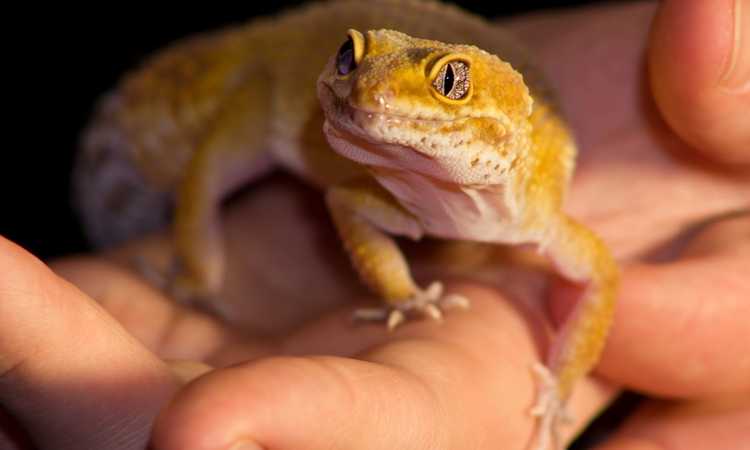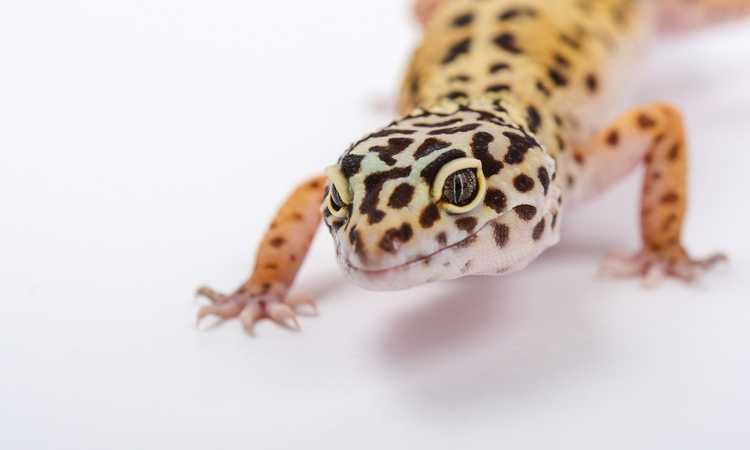Leopard geckos are one of the most popular pet lizards and for a good reason – they’re low maintenance, friendly, and relatively affordable. But do they get along well with children and other pets? That’s what we’ll be exploring in this post. So if you’re considering getting a leopard gecko as a pet, read on to find out what you need to know!
Protect your gecko against other pets
Before bringing a leopard gecko home, make sure you consider safety if you have other pets.
Cats, dogs, and ferrets all see small geckos and will kill them. Small reptiles can also be endangered by other pets. A lizard can be killed by large birds, rats can bite it and snakes can eat it. A leopard gecko is unlikely to recover from injuries once they are hurt. They are too small and, in comparison to other pets, fragile. Make sure you have a plan with your whole family before you bring your leopard gecko home. These plans are more important than any other thing to prevent an unfortunate accident.
There are cages that can be locked from cats and dogs. These cages are made of solid plastic and have no screens that can be pulled in by a cat or dog. Instead, they come with solid bottoms and tops. Even glass tanks with screen tops are safe as long as they are not accessible by cats and dogs.
Do not allow a leopard gecko or encourage her to play with other pets. She is too small and fragile to play with other pets. When you take your leopard gecko from her cage, make sure you also put your dogs and cats away. It is not a good idea to enjoy your gecko while letting a cat or dog play with it.
Teaching children about leopard geckos
Leopard geckos are great pets for children, as they’re small and easy to handle. However, you don’t have to teach your children how to interact with them. A few simple guidelines can make having a leopard gecko a rewarding experience for children while also keeping them safe.
Children under 12 years old should be watched when a leopard gecko is first joined the family. After several weeks of supervision, the gecko’s care should be monitored. Once you feel that the child is devoted and caring, you can relax a bit.

Keep Your Hands Clean When Handling Your Gecko
Before picking up your gecko, always wash your hands. Your gecko can be hurt by grease, soap, and other chemicals (even lotion).
Hold your gecko in your hand and wrap your arms around its body. Never grab your gecko’s tail.
Always wash your hands after handling your gecko. It is not a good idea to let your gecko get sick.
Don’t let your friends handle your gecko. You can let them gently pet your gecko’s head while you hold it. Exercising too much can cause injury to your gecko. They may also drop your pet or allow other pets to take her.
All people, children and adults, should wash their hands after handling a leopard gecko, or touching any part of the cage. Although leopard geckos are reptiles that are clean, they can also defecate in their cages. Washing your pet regularly will help reduce the likelihood of them becoming ill.
Travel Tips
Even captive-bred leopard geckos aren’t meant to travel. When their environment changes, reptiles can become very stressed. This can lead to stress-related illnesses, such as heart disease, kidney failure, and even death. If the gecko’s travel cage is kept from becoming too hot or cold, and there are no stops or detours, it can be moved safely. The gecko should not be included in recreational travel (vacation).
Do not allow a leopard gecko’s daily cage or small travel cage to be exposed to direct sunlight. The gecko will die if the interior heats up quickly.
Leaving Your Gecko At Home When You Travel
Think about how long a leopard lizard would have to stay alone if you travel frequently, whether for business or pleasure. If you travel for business purposes and only stay for one night, the leopard gecko would be fine. Your leopard gecko might not notice that you are gone if there is food and water.
If you are regularly away for more than one night, it is best to either avoid getting a leopard gecko or find someone who you can trust to care for her. You could ask a friend, family member or neighbor to help. Pet sitters are becoming more popular for caring for reptiles. The pet sitter can also bring in your newspaper, receive your mail, water your plants, and take care of your other pets
It doesn’t matter who you ask for help with your gecko, just make sure they are trustworthy and can take care of it. It would be terrible to bring home a hungry and dehydrated leopard gecko, or worse, a dead one.

Enjoy Your Gecko for Many Years
Given their size, leopard geckos can live for a long time. Most small lizards only live a few years. The average lifespan of male leopard geckos is around 20 years. 27 to 28 leopard geckos set longevity records. Female leopard geckos live a shorter life expectancy, with some reaching 20 or 21 years.
However, longevity also comes with responsibility. Many leopard geckos are given up by owners because they were purchased for children and become bored with them. Or, the owners get too busy and decide to buy a larger, more exotic reptile pet. Some geckos have been lost because their owners had unrealistic expectations. They thought that the gecko would make a better pet than a cat or dog.
Even though you might not know the future, leopard geckos will be with you for at least 20 years. If you’re interested in a leopard gecko, make sure to give your time every day.
Two Geckos Can Be More Fun Than One!
Many leopard gecko owners are so fascinated by their pet that they decide to keep adding more. It’s easy to become addicted to leopard geckos. Let’s not forget that I have leopard geckos! Check out the pros and cons to having more leopard geckos in your family before you add them to your own.
Positive aspects of owning more than one gecko:
Entertainment: With more than one, there are more gecko antics you can watch.
Colors: You can purchase several in different colors and patterns.
Everyone can have their own special pet
Breeding can be very exciting when you have multiple geckos.
Downsides of owning multiple geckos:
Social behavior: Not all leopard geckos get along. It is possible for them to fight.
Space – Because not everyone gets along, you might need more space to house more cages.
Price: More cages, substrate, food and possibly even veterinary care are needed.
Time – Caring for more pets takes more time.
Before you make a decision about who to choose, consider who is compatible with whom. In a future blog post, we will talk in detail about how to choose the best companion for your gecko!
Read This Next: How To Choose A Healthy Leopard Gecko
Leopard geckos make great pets for children and can get along with other animals in the household too, as long as they are introduced properly. If you’re thinking of getting a leopard gecko, be sure to do your research first so that you know what to expect in terms of care and temperament. With a little bit of effort, you’ll have a happy and healthy pet that will bring years of enjoyment.
Related posts:

Hi – I’m Erika, the lead gecko enthusiast here at Geckopedia! I write articles about pet geckos, including what to feed your leopard gecko and how to help your pet gecko live a long, happy life! I graduated with advanced degrees from UC-Berkeley, the University of Southern California (USC) and Indiana University-Bloomington, where I studied Biology and Animal Science. I use my experience to help others learn about gecko care, and I am an advocate for all topics gecko related!
